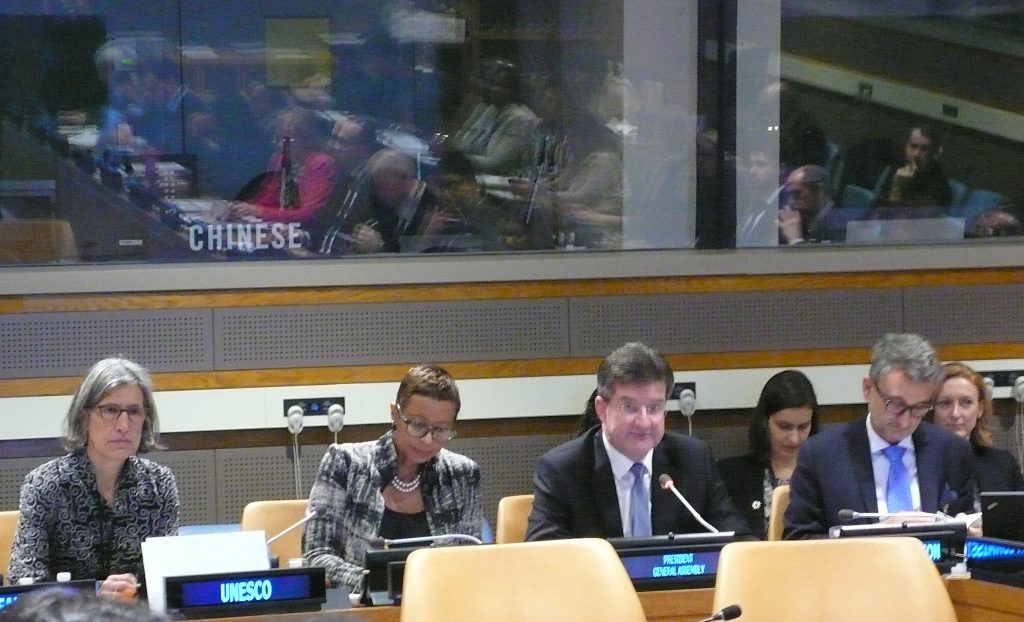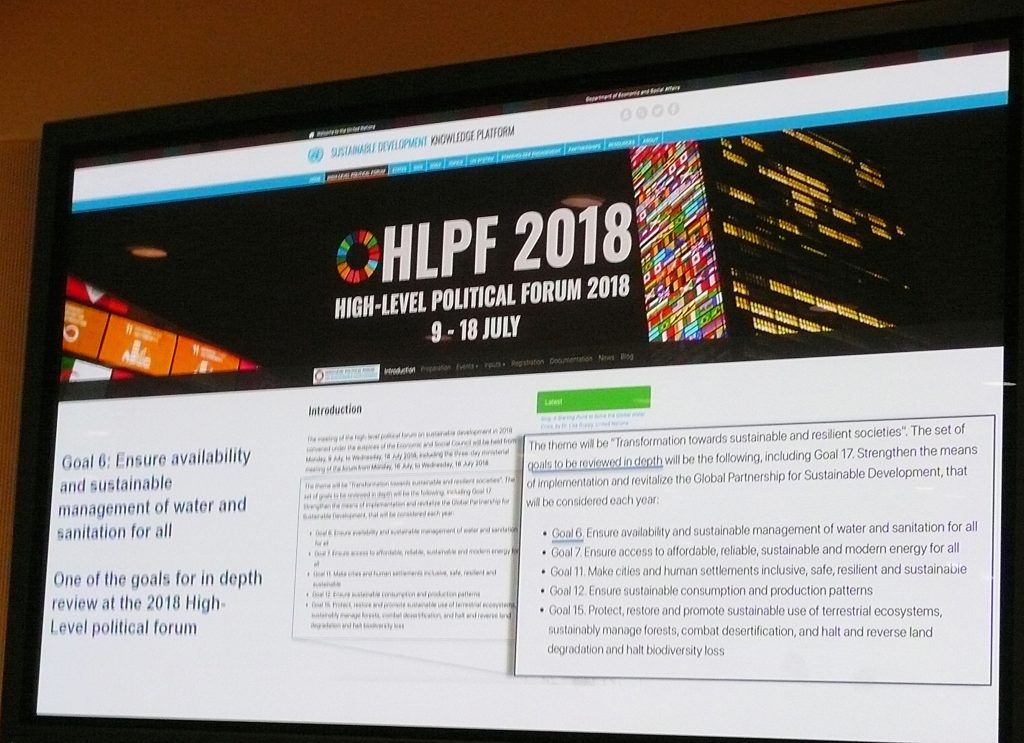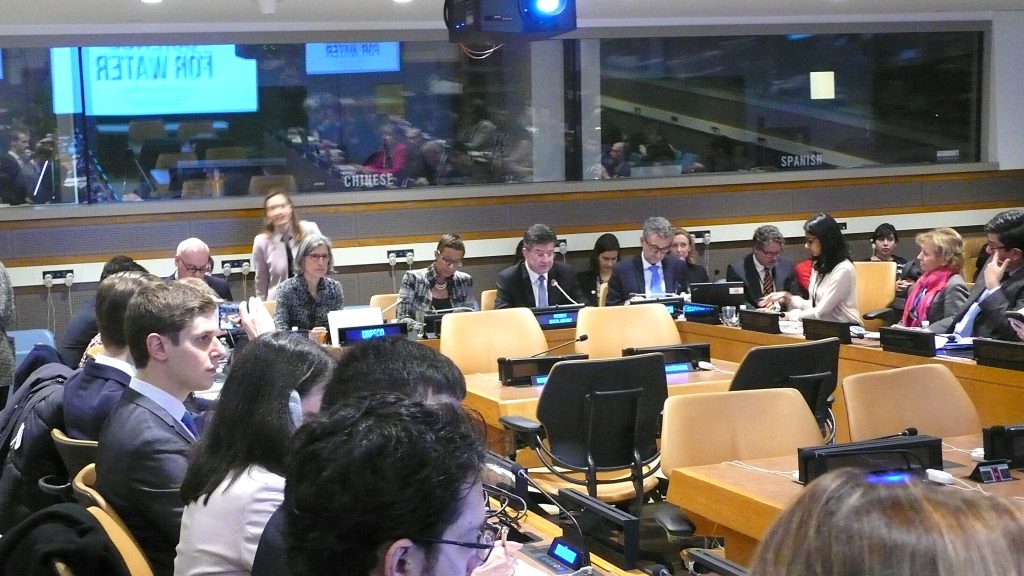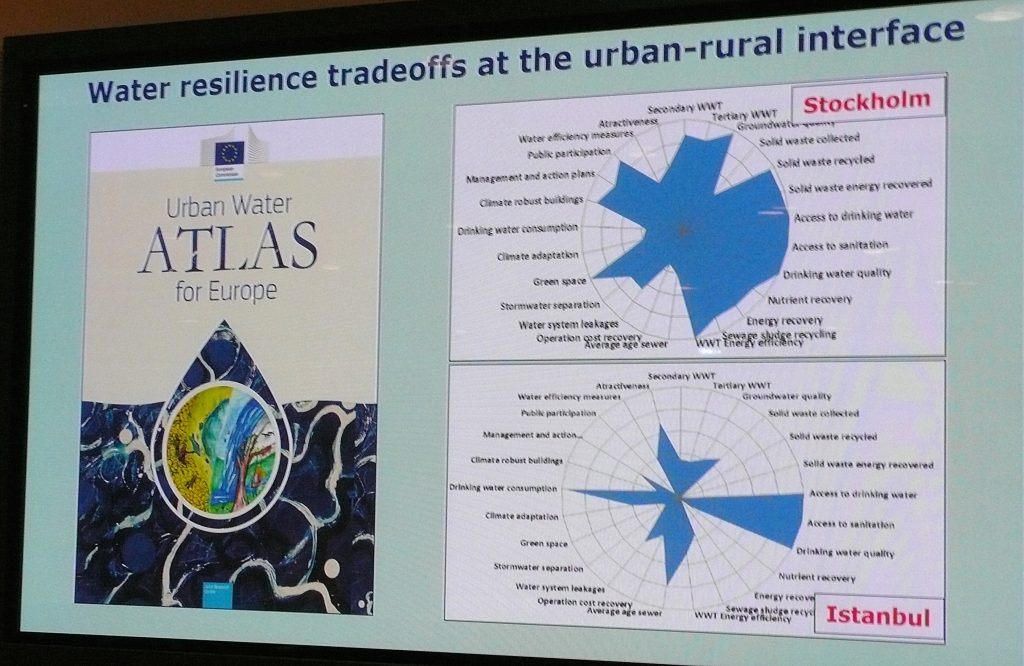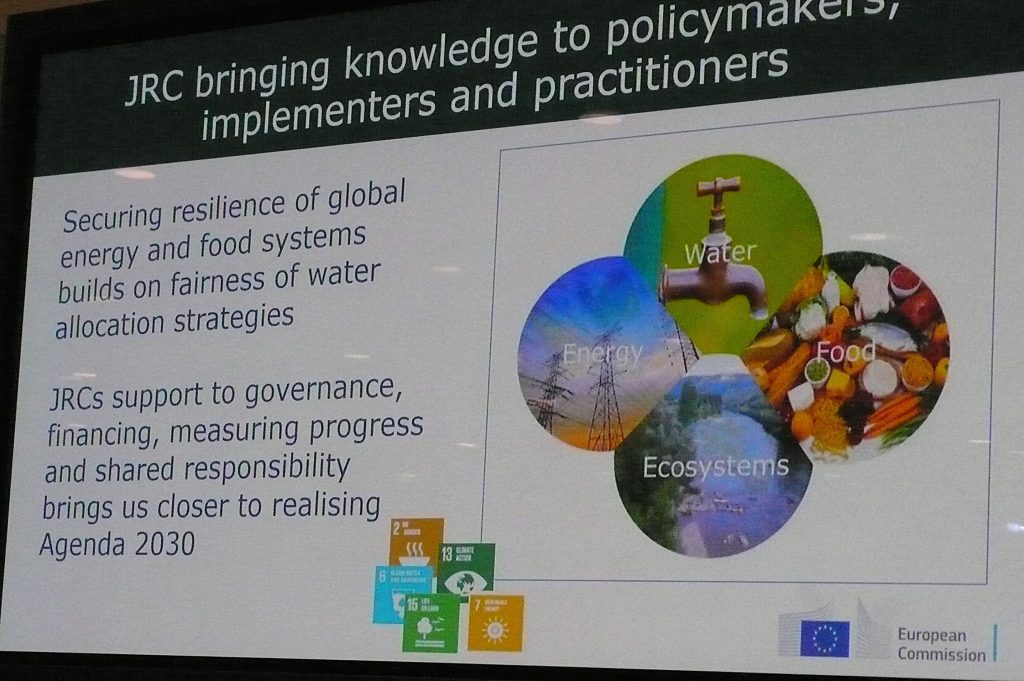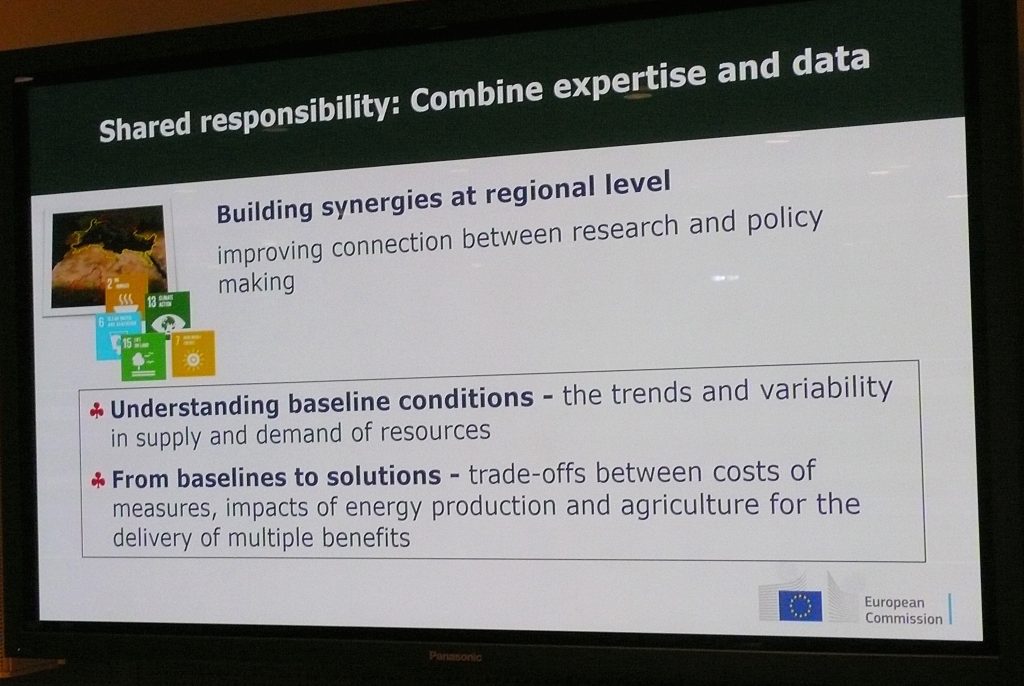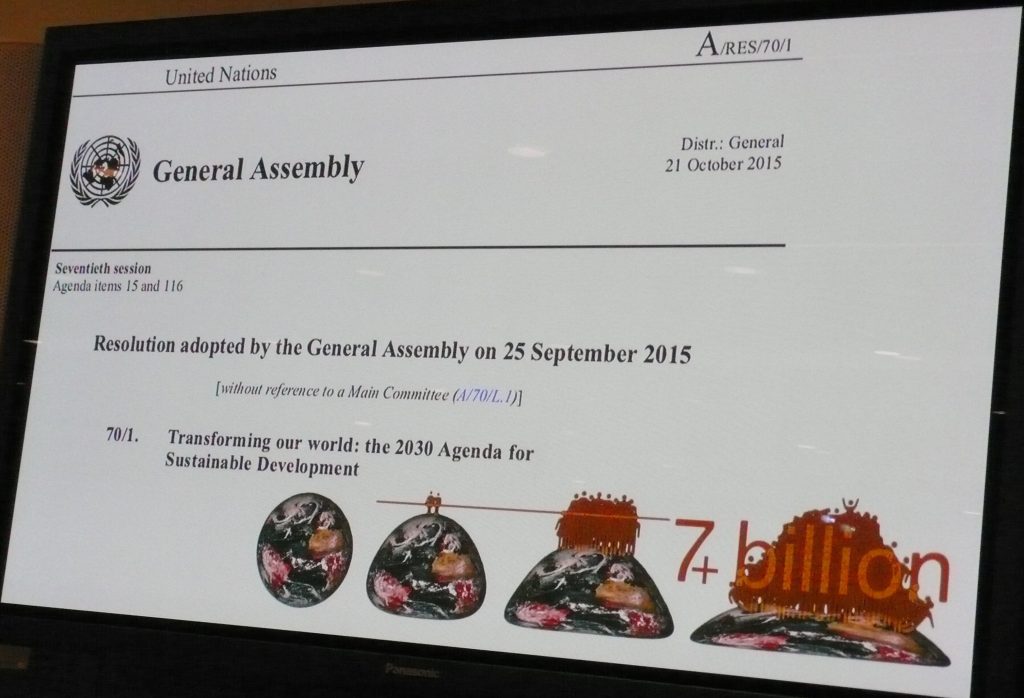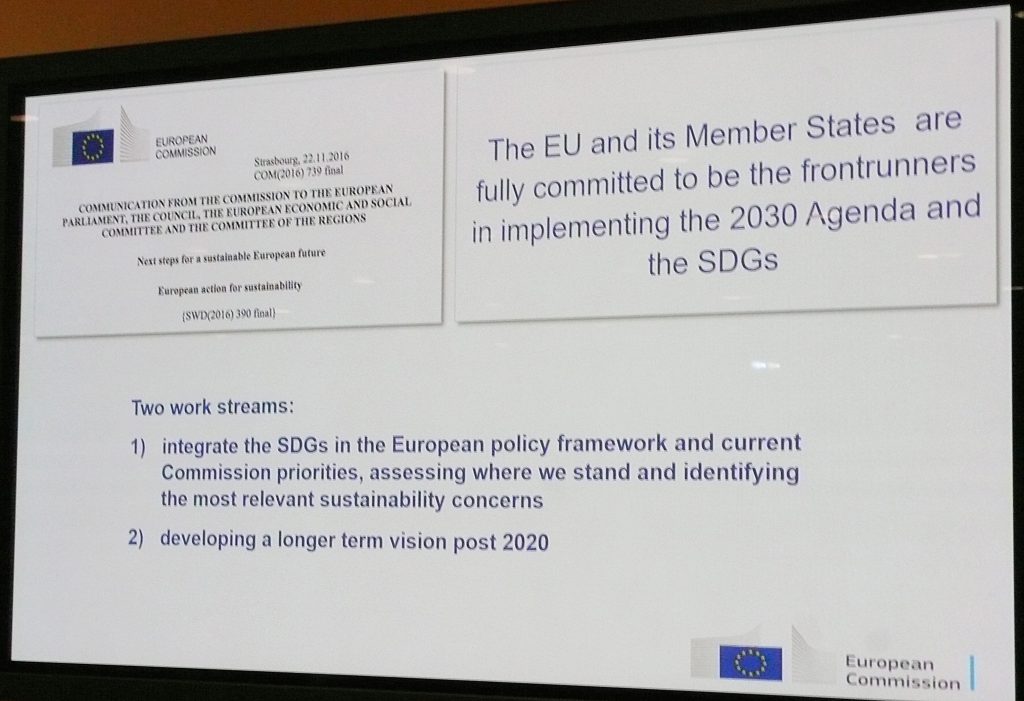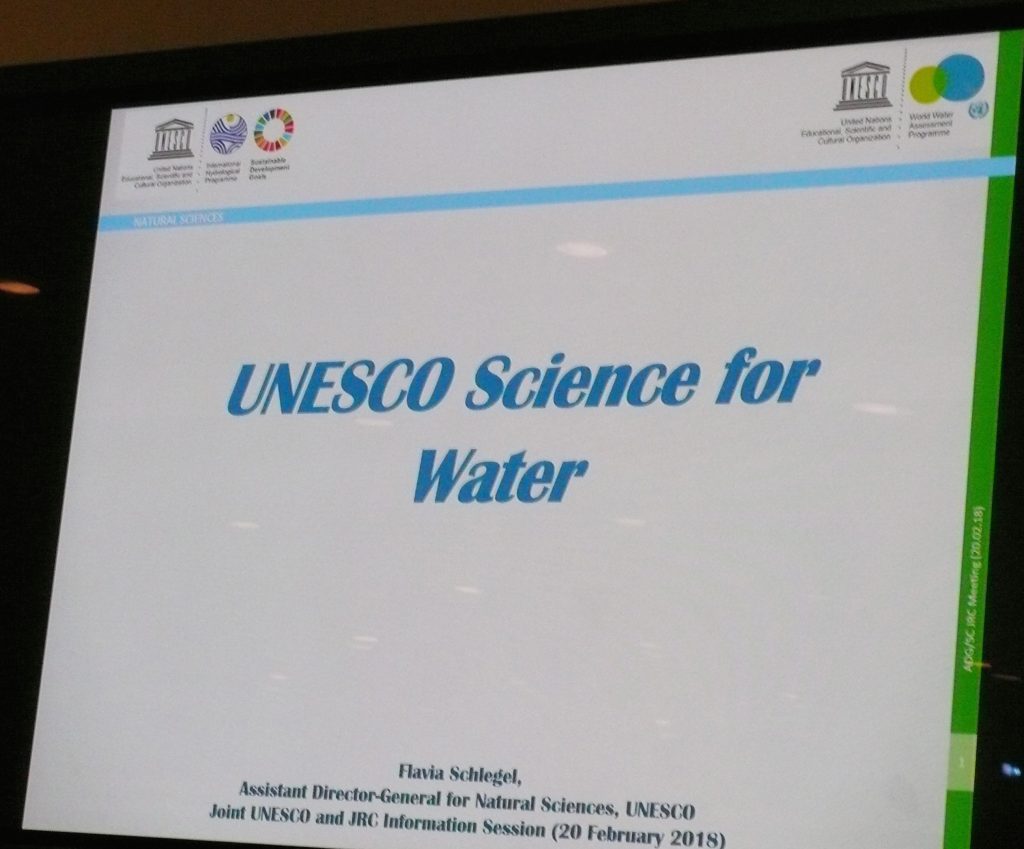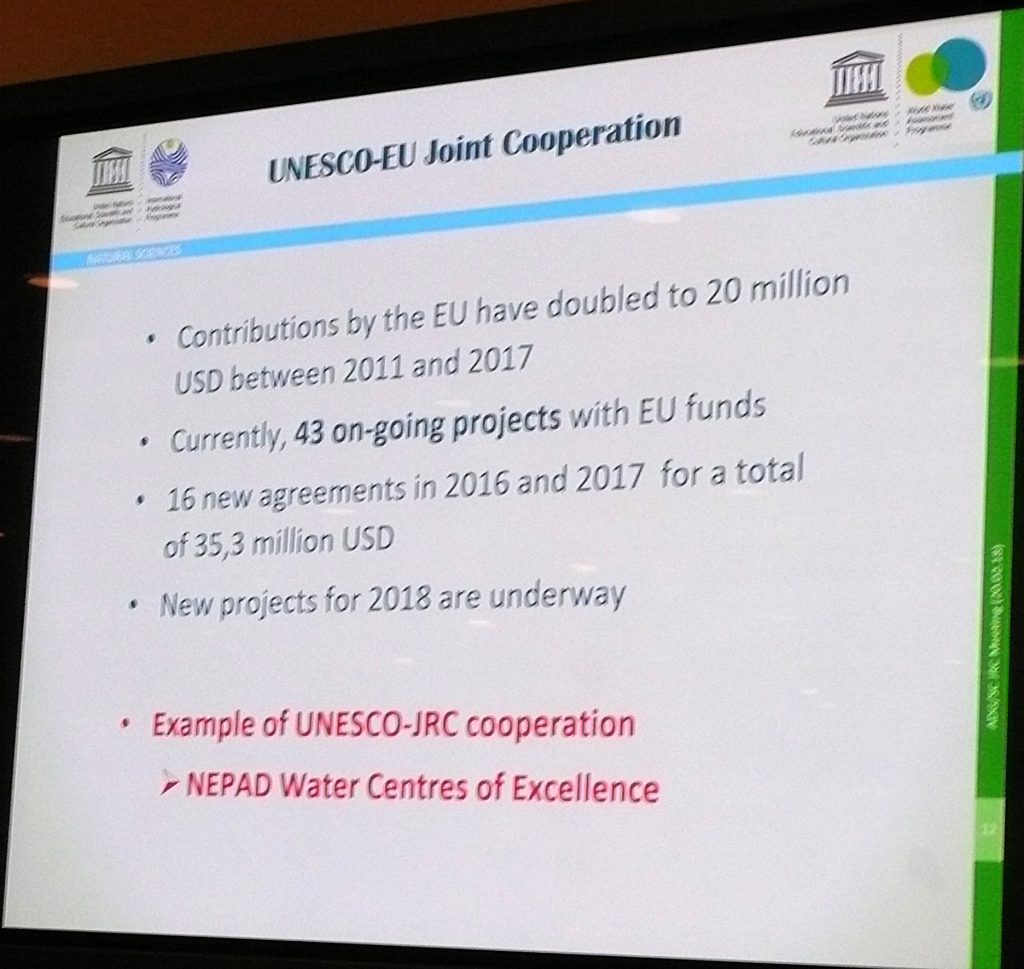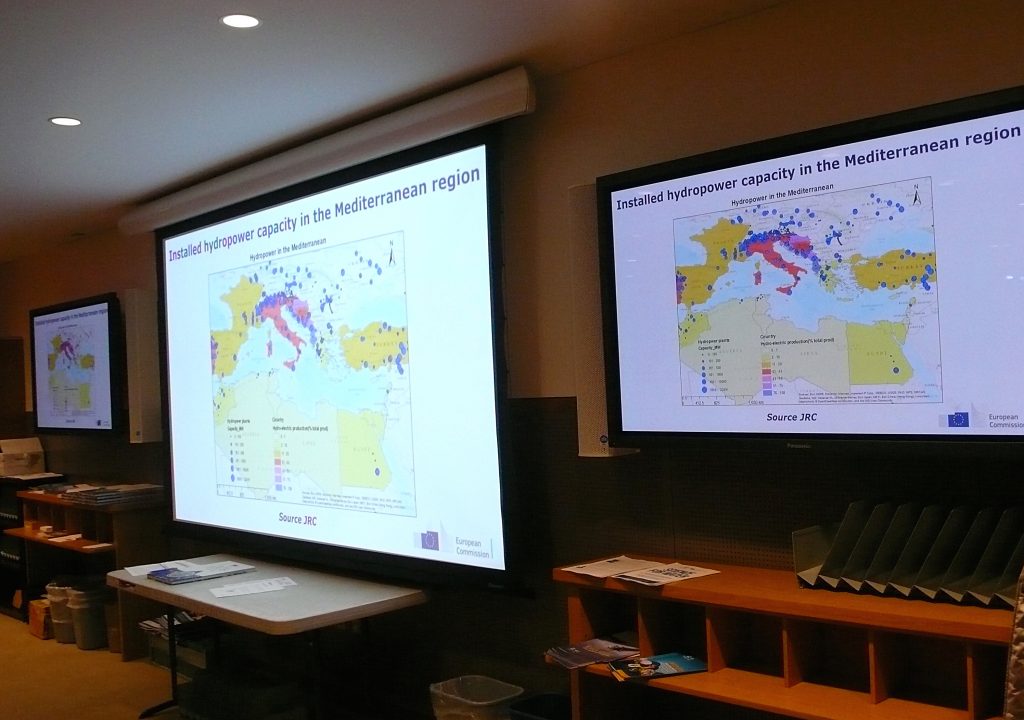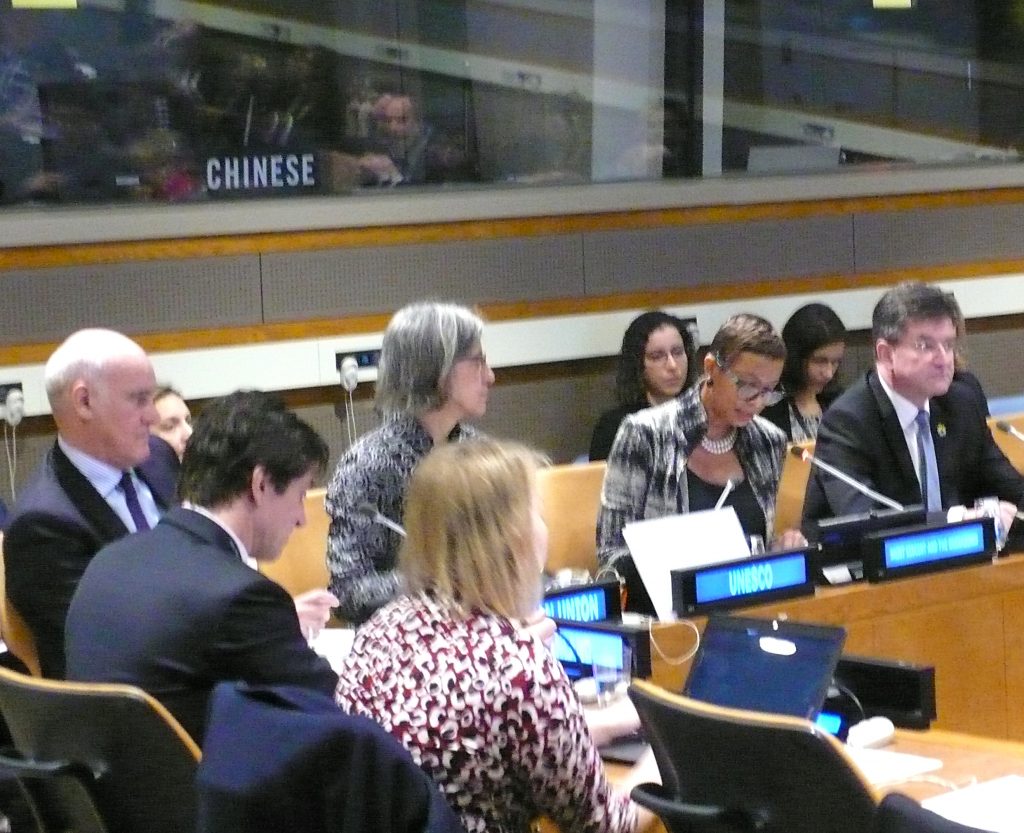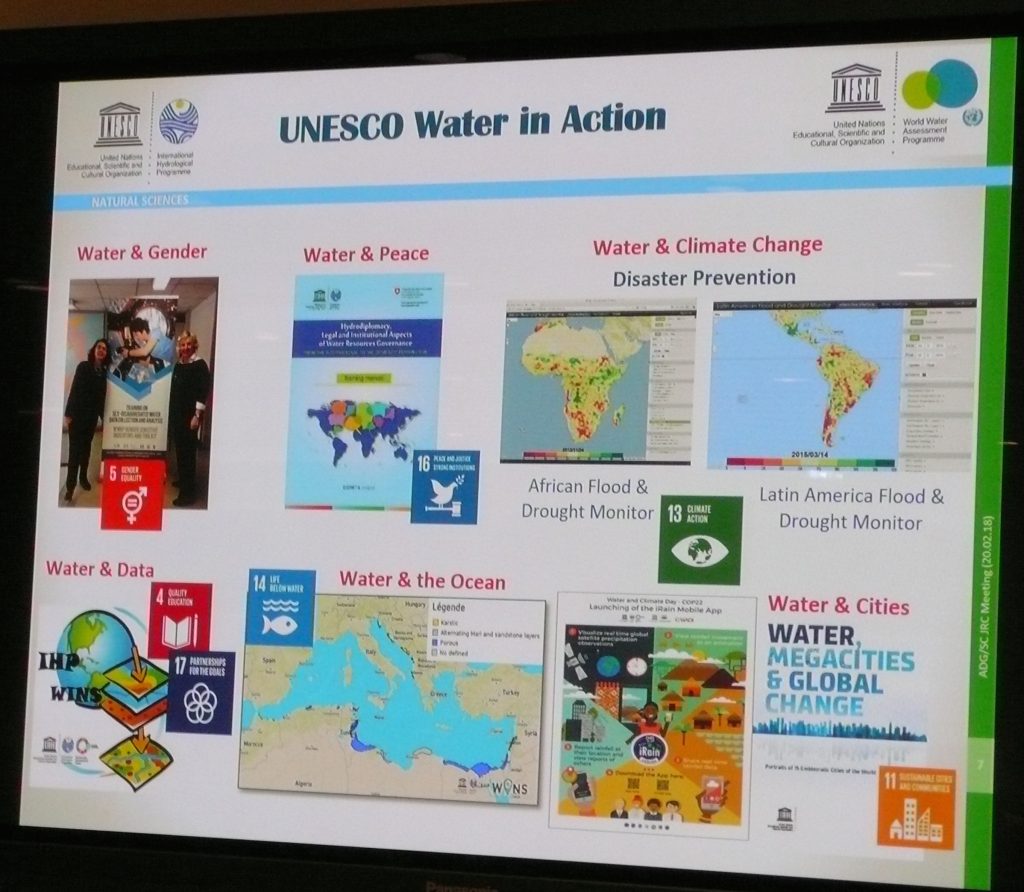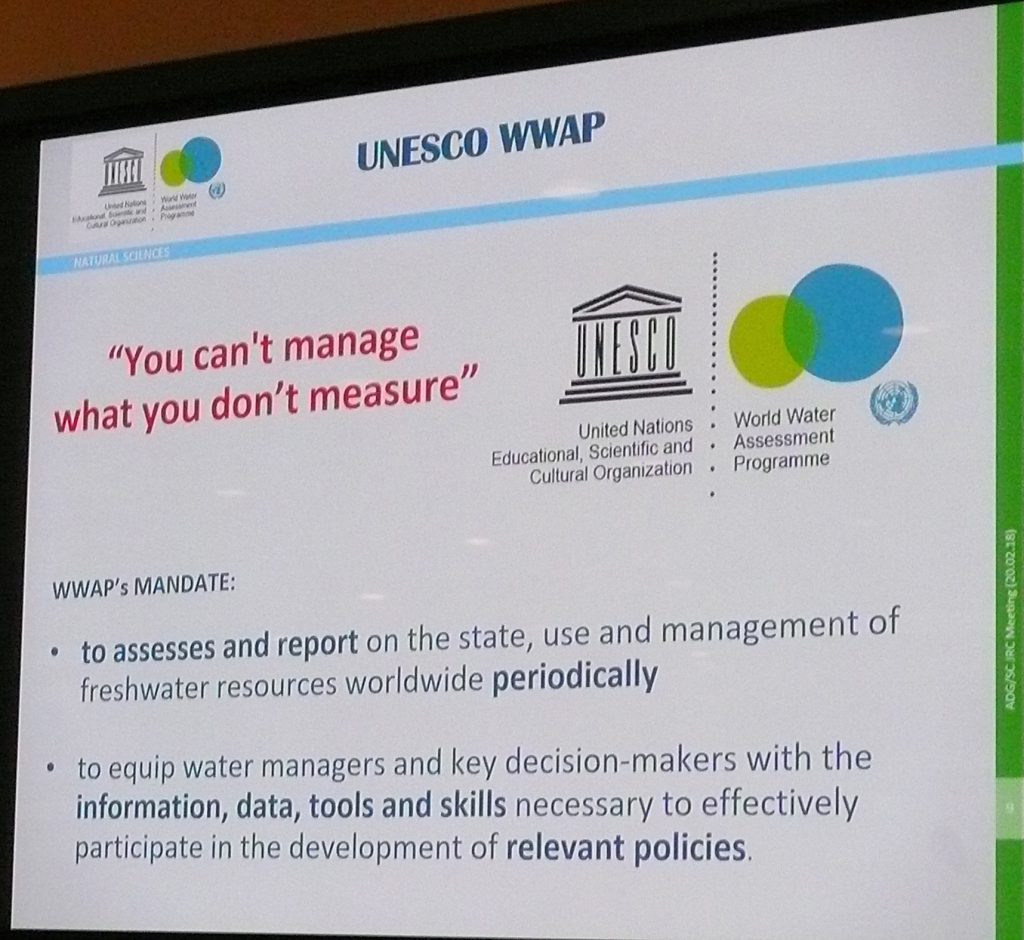#SCIENCEforWATER: Effective Solutions for Achieving SDG6 and Water-related Goals and Targets of the 2030
Joint #UNESCO AND JRC (EC Joint Research Centre) Information Session with participation of the President of the General Assembly at the United Nations Conference Room# 5, NYC (Feb. 20, 2018).
In the context of the International Decade for Action: Water for Sustainable Development (2018 – 2028), the meeting informed Member States on the collective contributions of UNESCO and JRC to the Implementation of SDG 6 and other water-related goals and targets.
UNESCO SCIENCE FOR WATER | Visual Notes from the session. | TurkishLibrary.Us, New York 21 February 2018
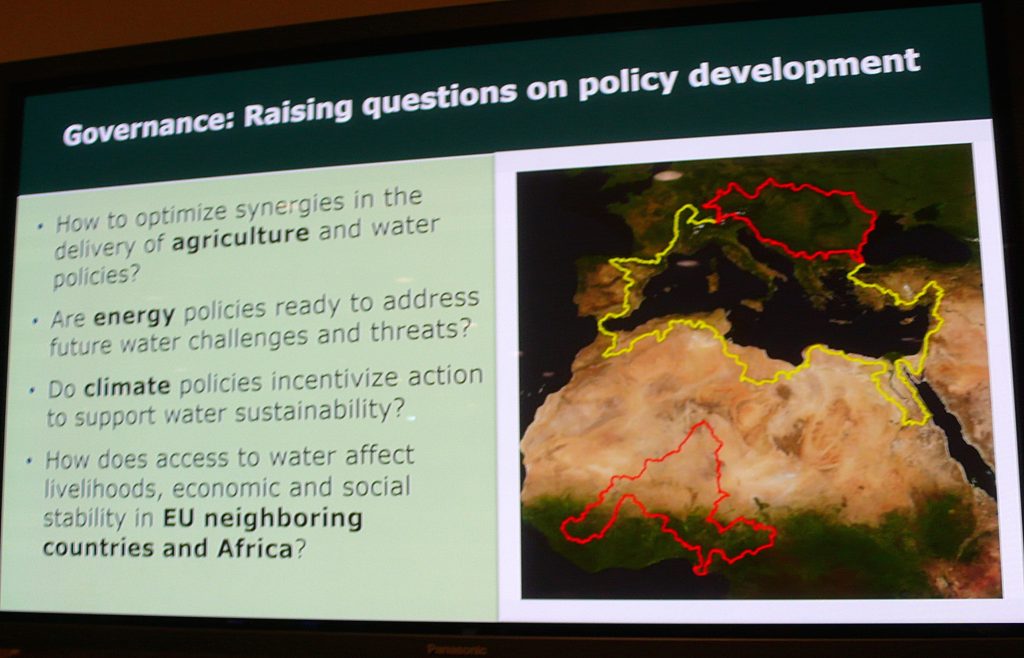 GOVERNANCE: RAISING QUESTIONS ON POLICY DEVELOPMENT
GOVERNANCE: RAISING QUESTIONS ON POLICY DEVELOPMENT
* How to optimize synergies in the delivery of agriculture and water policies?
* Are energy policies ready to address future water challenges and threats?
* Do climate policies incentivize action to support water sustainability?
* How does access to water affect livelihoods, economic and social stability in EU neighboring countries and Africa?
HLPF 2018
High Level Political Forum 2018
9 – 18 July
Goal 6: Ensure availability and sustainable management of water and sanitation for all
One of the goals for in depth review at the 2018 High-Level political forum
The theme will be “Transformation towards sustainable and resilient societies”. The set of goals to be reviewed in depth will be the following, including Goal 17. Strengthen the means of implementation and revitalize the Global Partnerships for Sustainable Development, that will be considered each year:
* Goal 6: Ensure availability and sustainable management of water and sanitation for all
* Goal 7: Ensure access to affordable, reliable, sustainable and modern energy for all
* Goal 11: Make cities and human settlements inclusive, safe, resilient and sustainable
* Goal 12: Ensure sustainable consumption and production patterns
* Goal 15: Protect, restore and promote sustainable use of terrestrial ecosystems, sustainability manage forests, combat desertification, and halt and reverse land degradation and halt biodiversity loss.
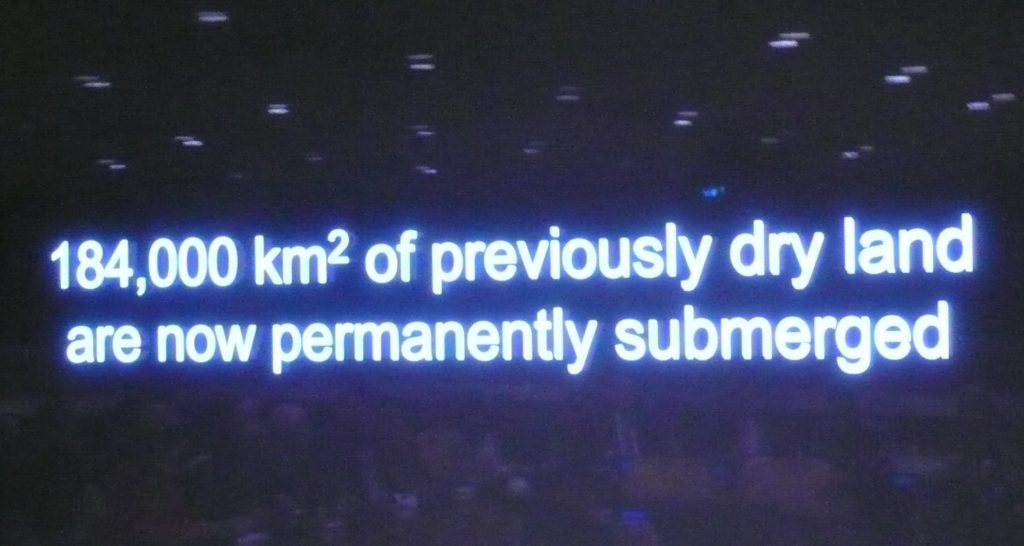 184,000km2 of previously dry land are now permanently submerged.
184,000km2 of previously dry land are now permanently submerged.
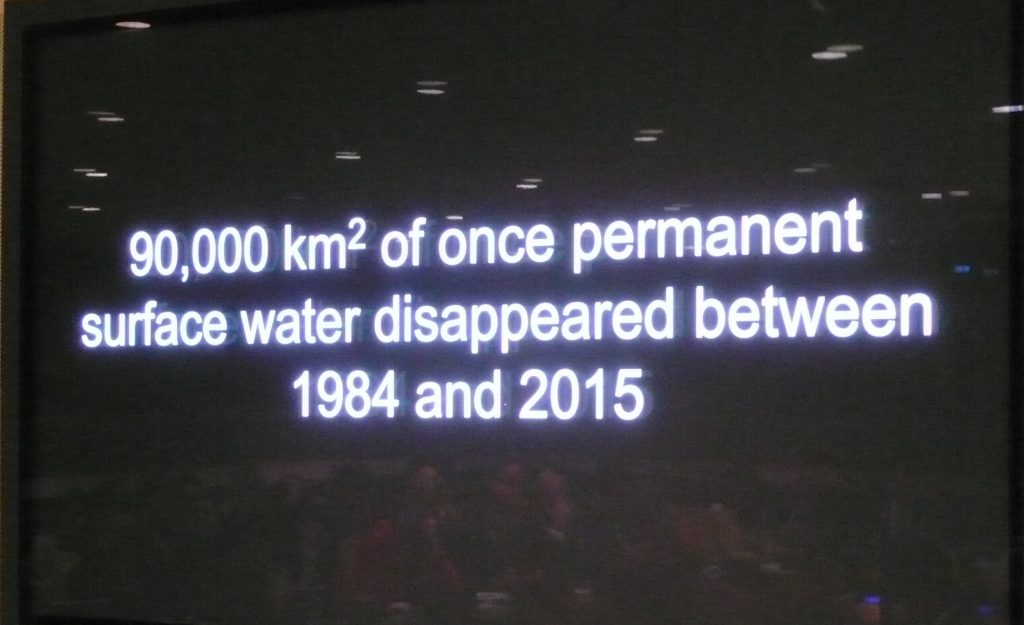 90,000 km2 of once permanent surface water disappeared between 1984 and 2015.
90,000 km2 of once permanent surface water disappeared between 1984 and 2015.
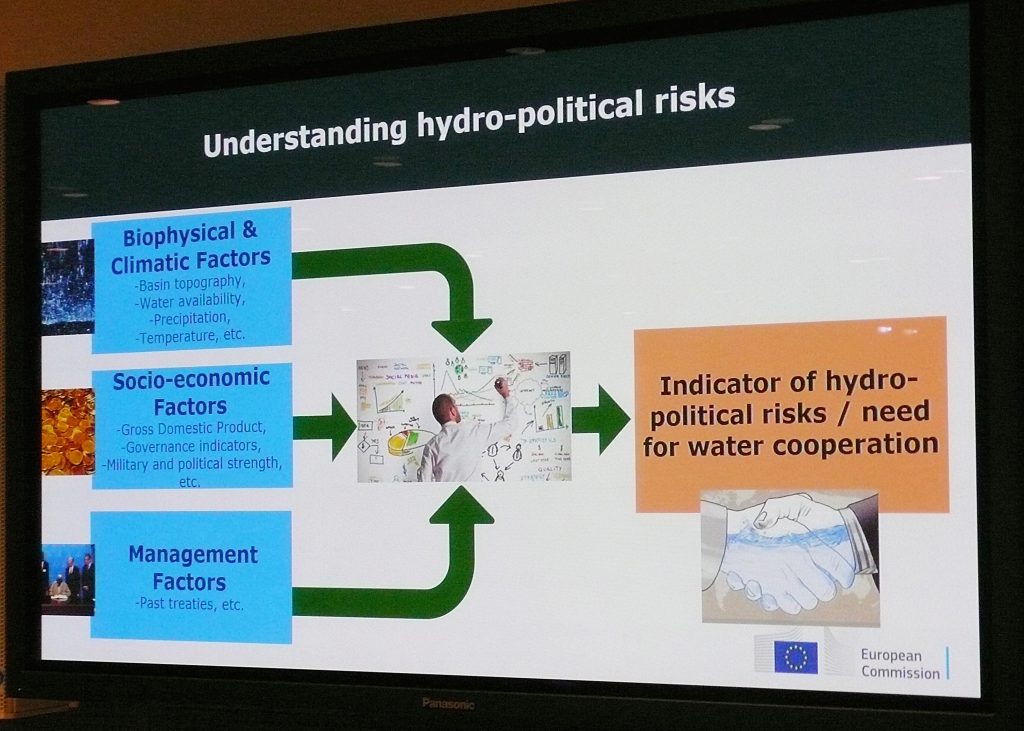
Understanding hydro-political risks:
• Biophysical & Climatic Factors
• Socio-Economic Factors
• Management Factors
=
INDICATOR OF HYDRO-POLITICAL RISKS / NEED FOR WATER COOPERATION
Joint Research Centre | JRC bringing knowledge to policymakers, implementers and practitioners
• Securing resilience of global energy and food systems builds on fairness of water allocation strategies
• JRSs support to governance, financing, measuring progress and shared responsibility brings us closer to realising Agenda 2030. (European Commission)
• Opening Remarks by Miroslav Lajčák
President of the 72nd session of the United Nations General Assembly
• Remarks by Ambassador João Vale de Almeida
Head of the EU Delegation to the UN
• Remarks by Ambassador Kai Sauer
Permanent Representative of Finland to the UN,
Steering Committee of the Group of Friends of Water
Presentation by Vladimír Šucha
Director-General of the EC Joint Research Centre (JRC)
Presentation by Flavia Schlegel
UNESCO Assistant Director General for Natural Sciences
Discussion
Closing
The event moderated by Ambassador Rohanda King,
Permanent Representative of St. Vincent and the Grenadines to the UN and Vice-President of ECOSOC
* * *
COMMENT & QUESTION TO THE
UNESCO-EU Joint Cooperation:
In today’s world, as it is indicated during the session that near to 2 billion world population does NOT have an ACCESS to clean water while the 50 percent world’s clean-drinkable water has been allocated for production energy/electricity including hydro-power and nuclear power plants, transportation, agriculture, food production etc.
And, the Small Islands States suffer greatly, the world has already lost “90,000 km2 of once-permanent surface water”, and the humanity at large faces WATER SCARCITY that effects in and all levels of life on earth that water is the skeleton of the all the SDGs and all forms of life and each and every one of our life – existential on Earth depends on water…
Since Earth has over 70 percent water in the OCEANs that “water from the ocean” was not presented in one form or another towards the potential solution.
With that in mind, are there some ongoing scientific projects, in particular, which are focused to produce electricity/energy through ocean water instead of clean water of Earth?
Imagining that oceans are placed at the center for all forms of NEED for energy productions and/or using it as the main source of life for clean and drinkable water instead of digging out the oceans for oil for all form of electricity production and allocating clean water for nuclear power plants!
Taken this path potentially could/will enable us to use such vast and rich resources towards energy/electricity production on a big magnitude that NEED for water in all areas of life could be taken care of perhaps by 2030 without huge sacrifice and further threat to our very existence!
In short, WHY NOT, OCEAN water has not been put on the spectrum that could replace electricity/energy production based on the limited clean/drinkable water on the global level but NOT vise versa.
– Bircan Ünver, The Light Millennium, Head
NGO Rep. to the United Nations Department of Public Information
Posted on 21 February 2018, Turkish Library Museum – www.turkishlibrary.us, is under the umbrella of The Light Millennium Organization based in New York. Officially formed in 2001.
NGO Associated with the United Nations Department of Public Information since 2005.
